Are you navigating the intricate world of clinical trial agreements? Whether you're a researcher, a sponsor, or a legal advisor, understanding the nuances of these documents is essential for compliance and collaboration. In this article, we'll break down the key components of a clinical trial agreement and share a comprehensive letter template that you can customize for your needs. So grab a cup of coffee and let's explore how to streamline your clinical trial processesâread on to discover more!

Title and Parties Involved
The Clinical Trial Agreement (CTA) outlines the collaboration between the Sponsor (typically a pharmaceutical or biotechnology company, such as Pfizer or Moderna) and the Institution (often a medical facility or research organization, like Johns Hopkins University or Cleveland Clinic) overseeing the clinical study. This contract establishes the roles and responsibilities of each party regarding the execution of the clinical trial, including compliance with regulations (like FDA regulations in the United States), intellectual property provisions, and financial considerations. The project title for this trial might reference a specific investigational drug (e.g., "Study of Drug XYZ in Patients with Disease ABC") and indicate its phase (Phase I, II, or III), ensuring all parties are aligned on the study's scope and objectives.
Scope of Work and Objectives
The scope of work and objectives for a clinical trial agreement typically encompass several key aspects. The primary focus includes the detailed description of the clinical trial's purpose, which may involve assessing the efficacy and safety of a novel pharmaceutical agent, such as a new formulation of Metformin in diabetic patients (target population). Objectives typically outline specific endpoints (like improvement in HbA1c levels) that the study aims to achieve, as well as secondary outcomes, such as quality of life assessments through the EQ-5D scale. The trial's methodology will include participant recruitment strategies, informed consent processes, adherence to Good Clinical Practice (GCP) guidelines, and a timeline detailing the phases of the trial (e.g., Phase II study lasting 12 months). Additionally, data management procedures will be specified, ensuring compliance with regulations such as the Health Insurance Portability and Accountability Act (HIPAA) regarding patient confidentiality. Overall, these components must be aligned with regulatory requirements set by entities like the Food and Drug Administration (FDA).
Budget and Payment Terms
The budget and payment terms outlined in a clinical trial agreement detail financial responsibilities for all parties involved in the study. The total budget for the trial, estimated at $500,000, includes categories such as participant recruitment costs, laboratory fees, and personnel expenses. Payments are structured as milestones, with an initial payment of 30% due upon contract execution, followed by additional payments of 30% after the completion of enrollment, and the final 40% upon submission of the study's final report. Interest on late payments, set at 1.5% per month, ensures timely financial compliance. Additionally, an itemized budget breakdown should be included, specifying costs for site audits, data management, and regulatory filing fees, ensuring clarity and accountability throughout the project's duration.
Confidentiality and Data Protection
Confidentiality and data protection in clinical trial agreements are critical to ensure the integrity and security of sensitive patient information. This includes provisions that safeguard personal data from unauthorized access and establish protocols for data handling, storage, and transmission. Participants involved in trials, often conducted at renowned medical institutions like Mayo Clinic or Johns Hopkins Hospital, must provide informed consent that clearly outlines how their data will be used and any potential risks related to privacy breaches. Compliance with global regulations, such as the General Data Protection Regulation (GDPR) in Europe and the Health Insurance Portability and Accountability Act (HIPAA) in the United States, is paramount. These laws dictate strict guidelines for maintaining confidentiality and implementing data protection measures while conducting research involving human subjects.
Termination Clauses and Amendments
Termination clauses outline the conditions under which a clinical trial agreement can be ended prematurely. Typically, these clauses specify grounds for termination, such as breach of contract, failure to meet ethical guidelines, or adverse events. Amendments refer to changes made to the agreement after it has been executed. These adjustments may involve modifying trial protocols, updating budget allocations, or altering timelines. Clear procedures for submitting amendments, including approval processes and documentation requirements, arecritical for ensuring all parties remain compliant with regulatory standards set forth by governing bodies, such as the Food and Drug Administration (FDA) in the United States. Ensuring mutual agreement on termination terms and amendment processes strengthens collaboration between sponsors and research institutions.
Letter Template For Clinical Trial Agreement Samples
Letter template of clinical trial agreement for pharmaceutical companies
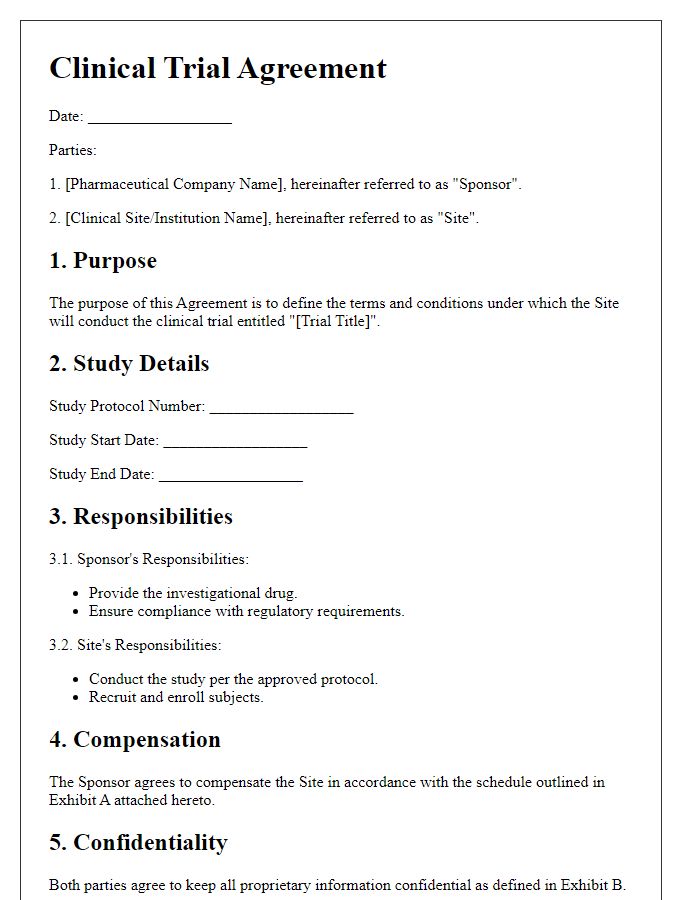
Letter template of clinical trial agreement for medical device manufacturers
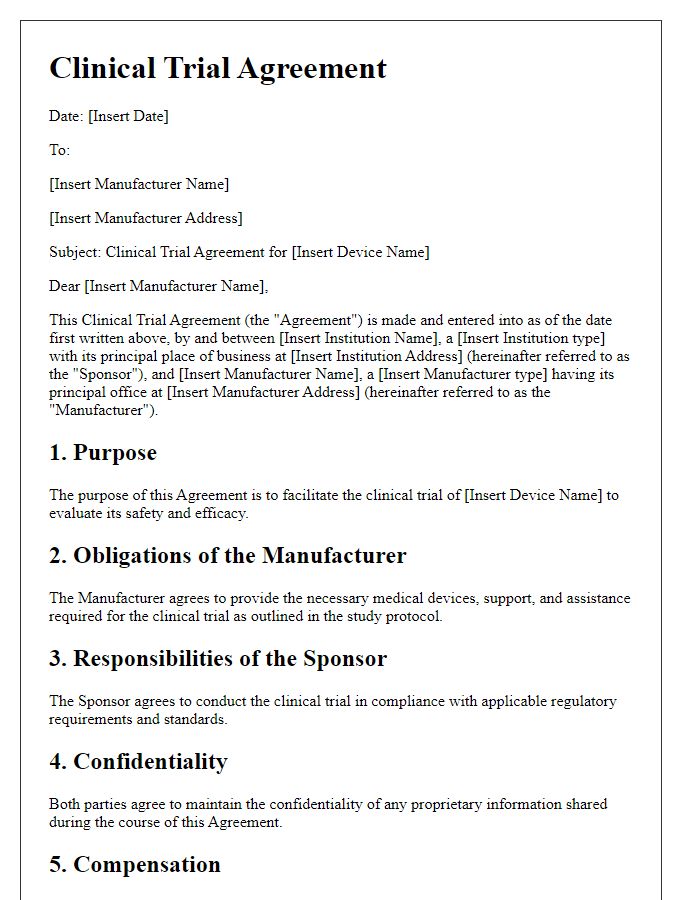
Letter template of clinical trial agreement for patient recruitment organizations
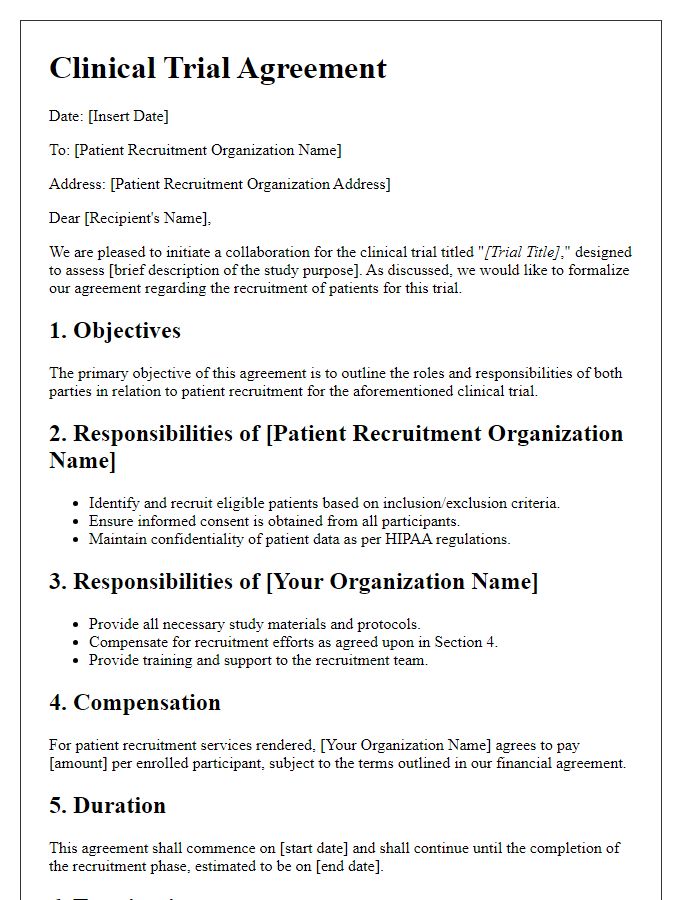
Letter template of clinical trial agreement for contract research organizations
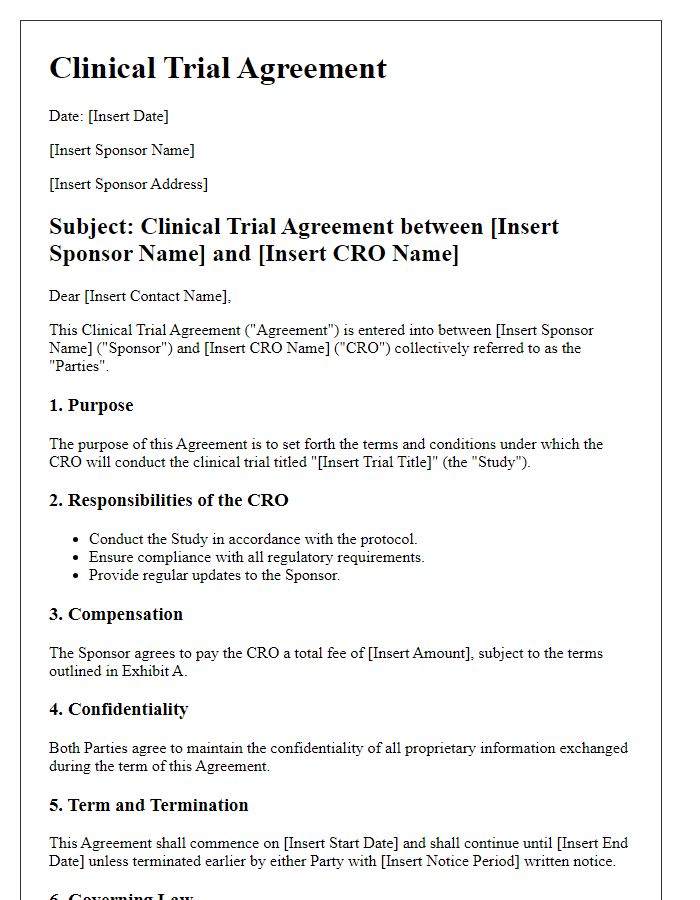
Letter template of clinical trial agreement for sponsor-initiated trials
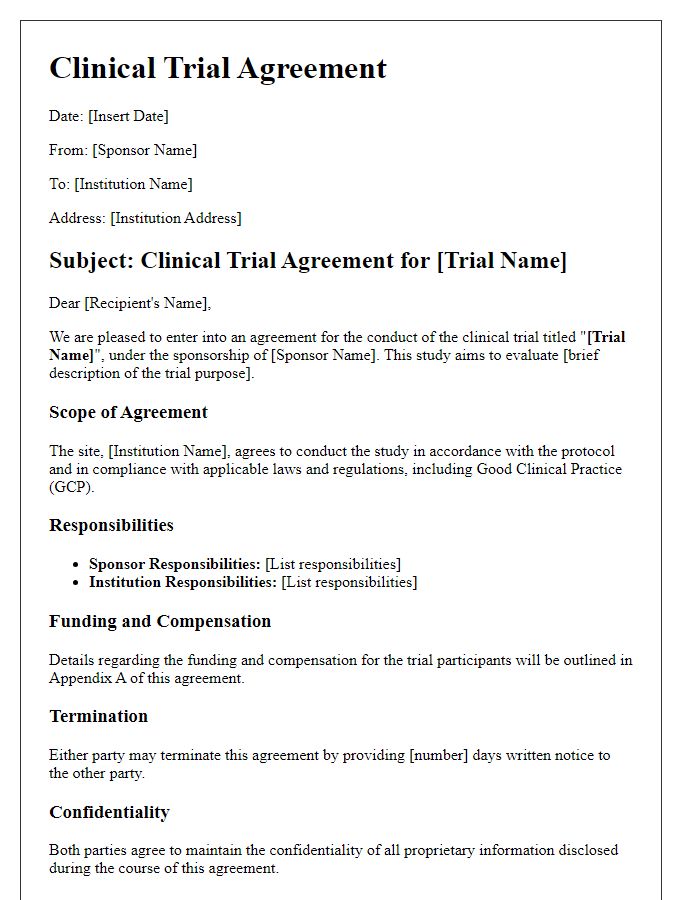
Letter template of clinical trial agreement for investigator-initiated studies
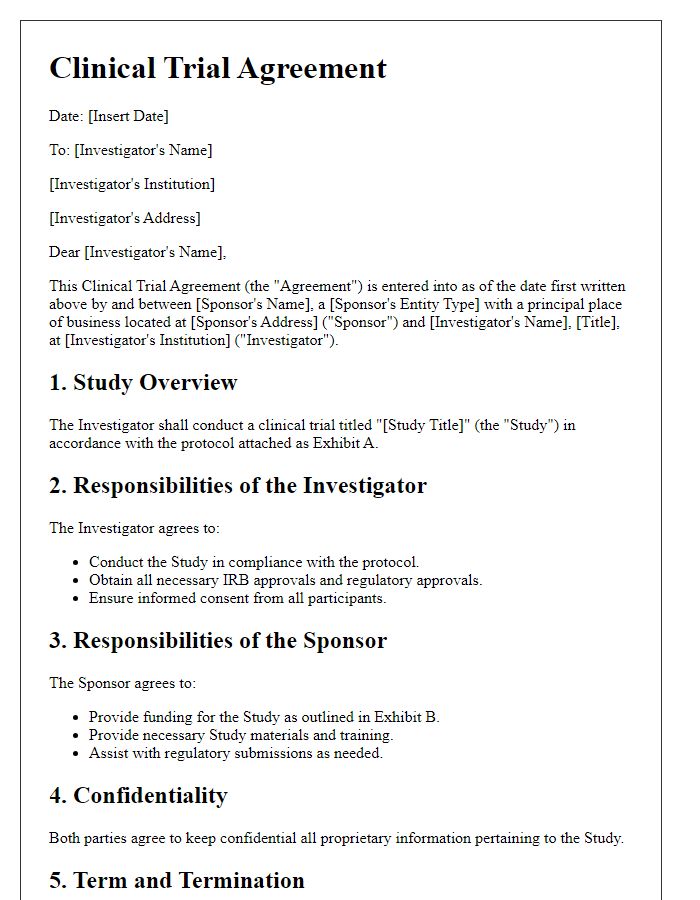
Letter template of clinical trial agreement for data-sharing collaborations
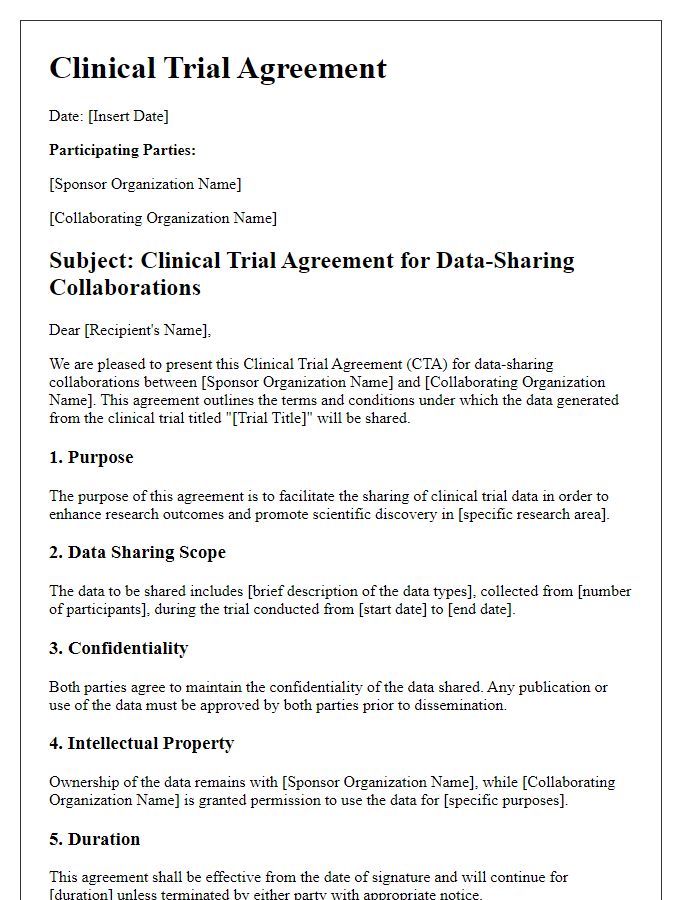

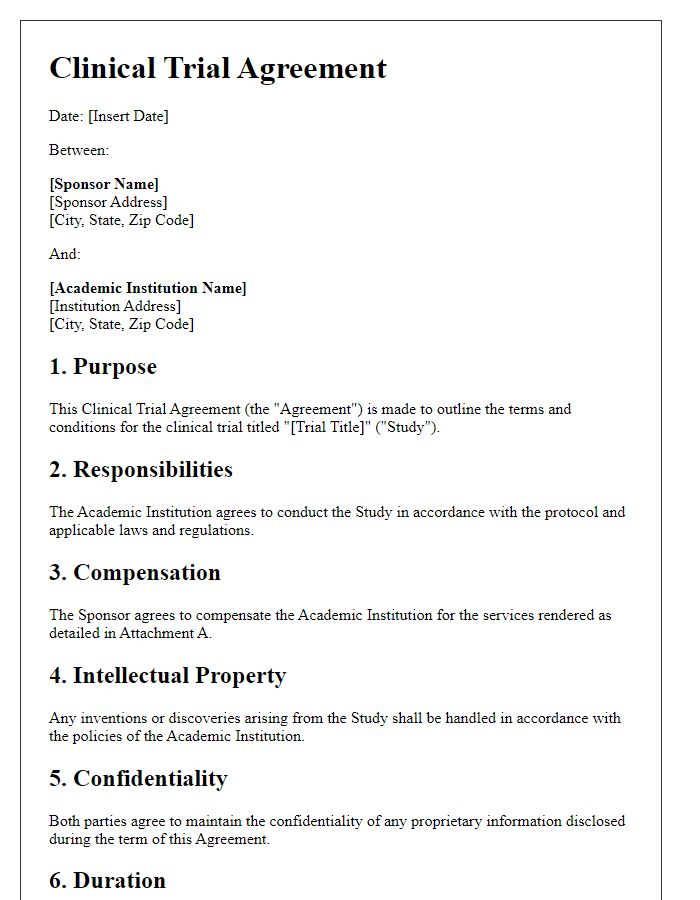
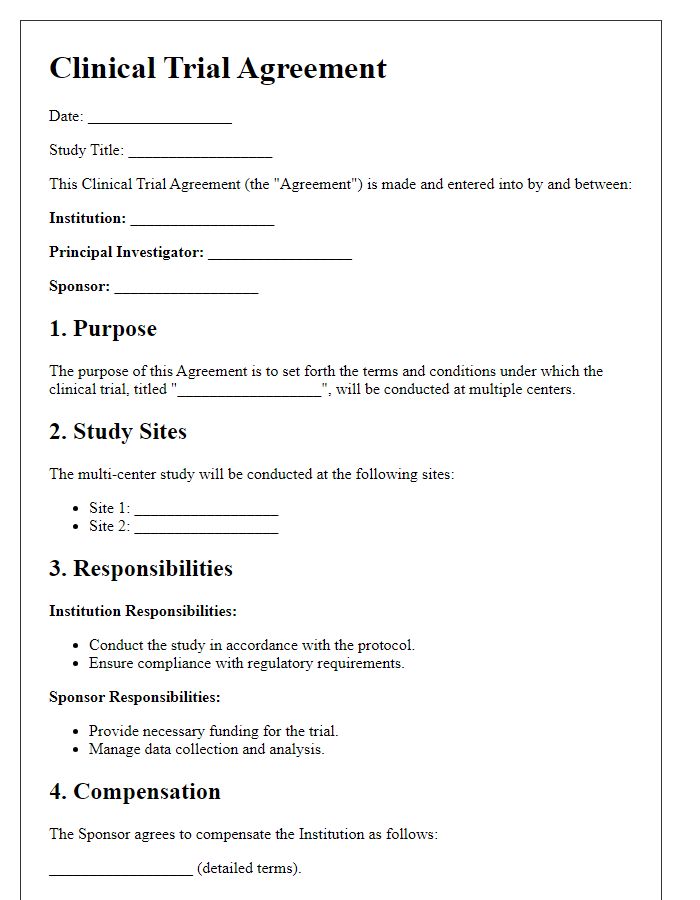
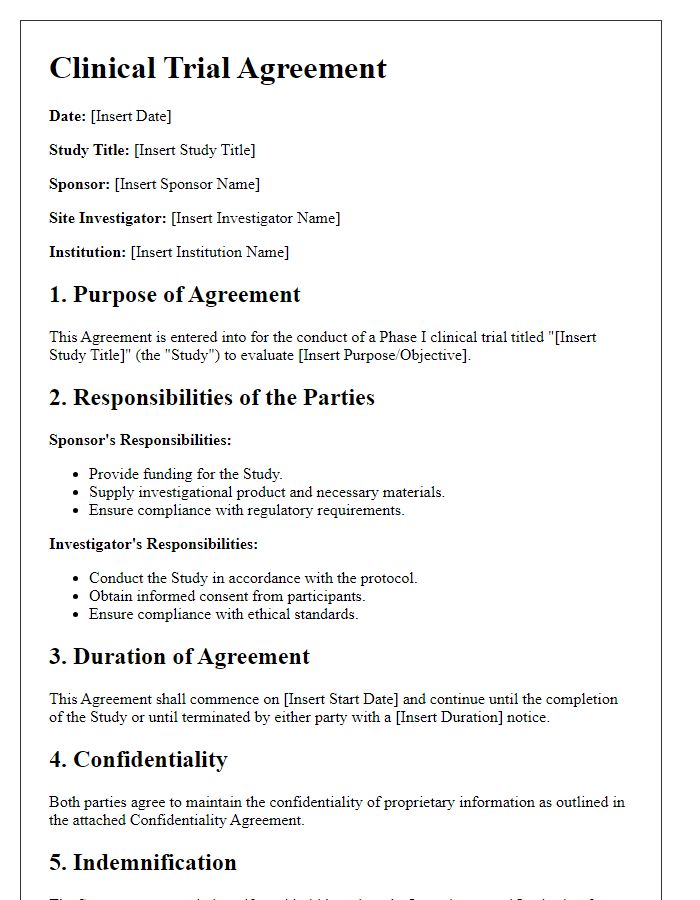


Comments